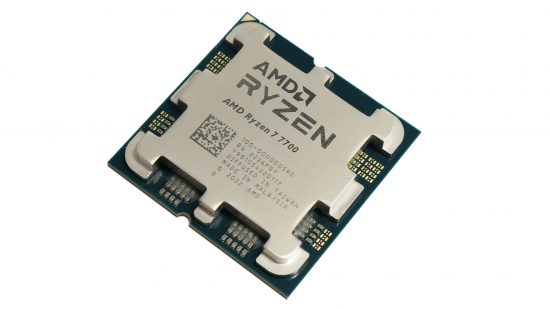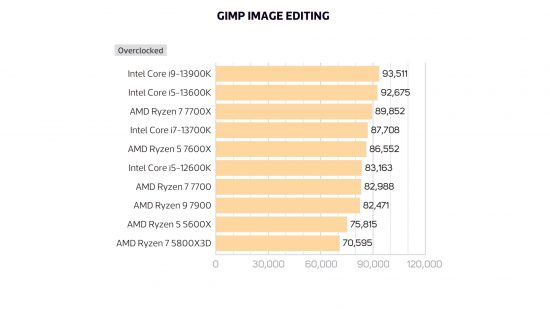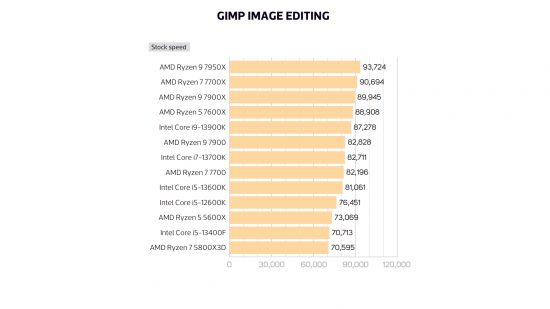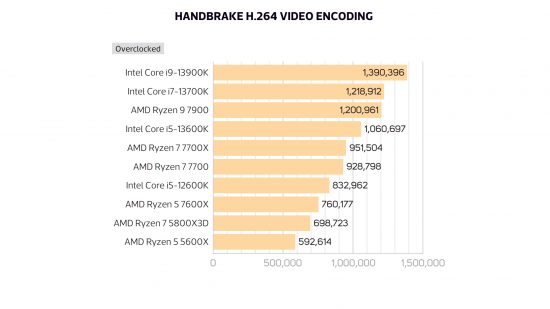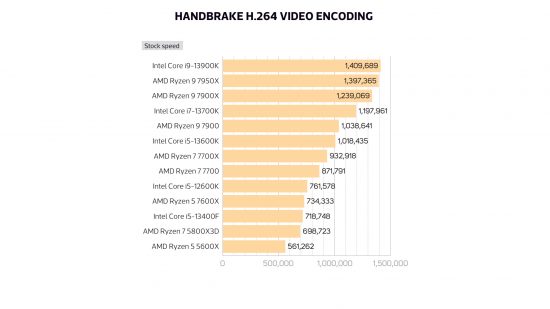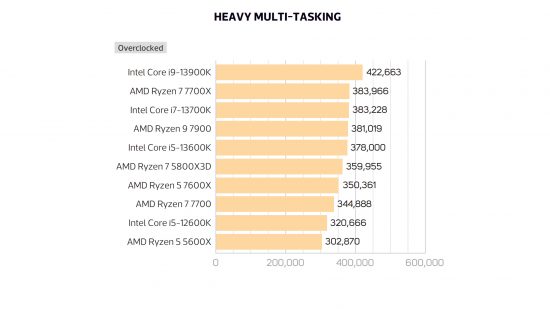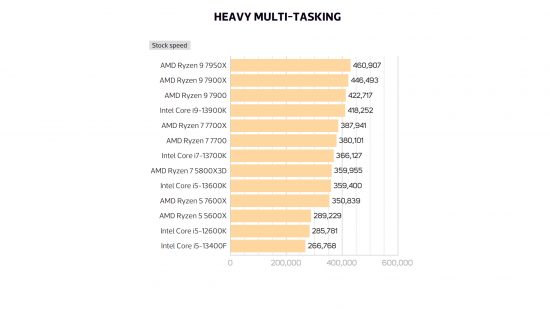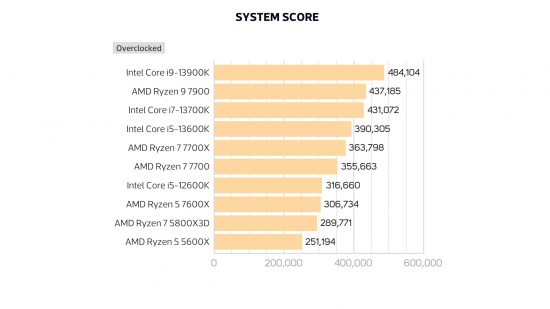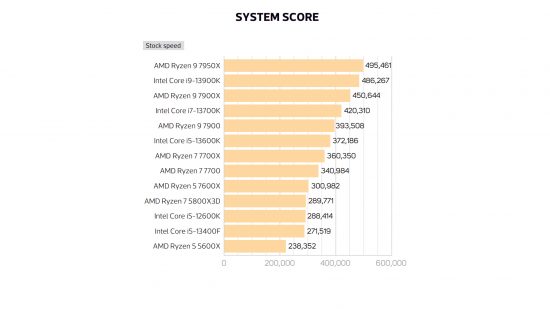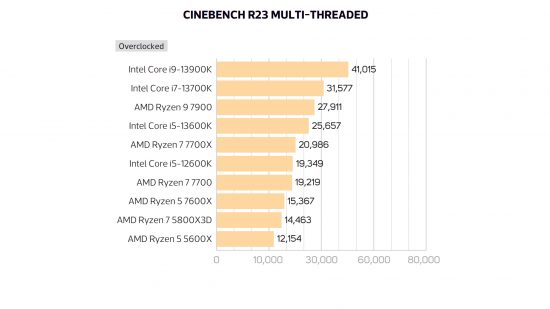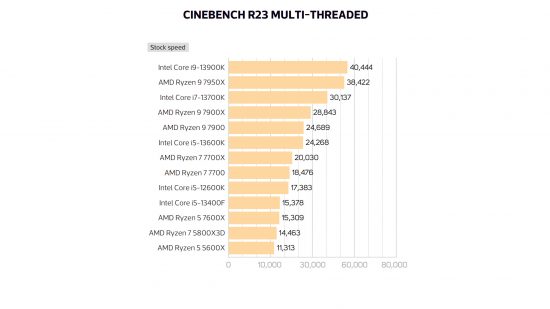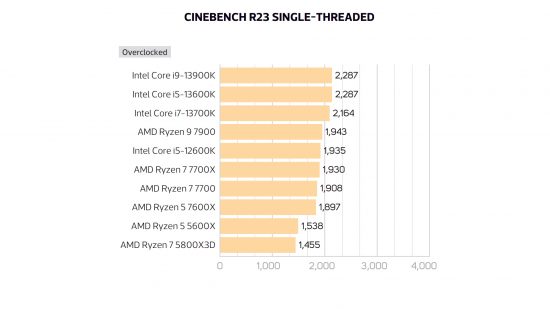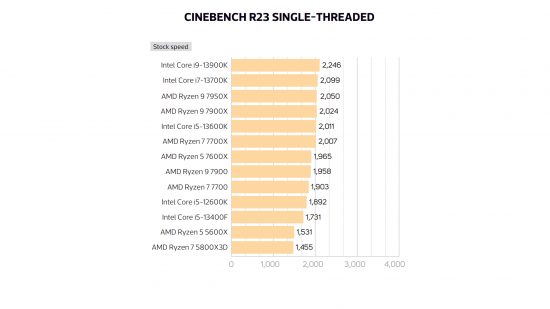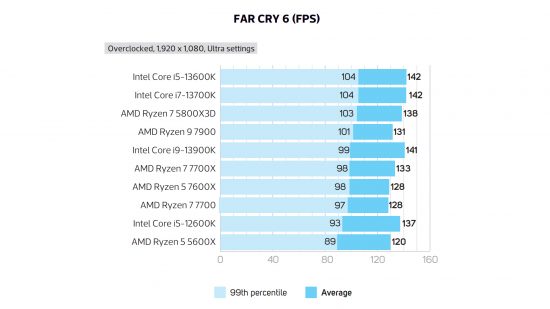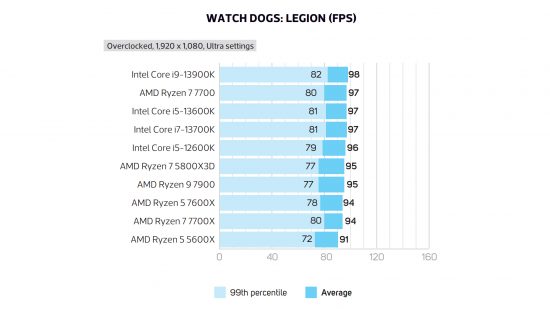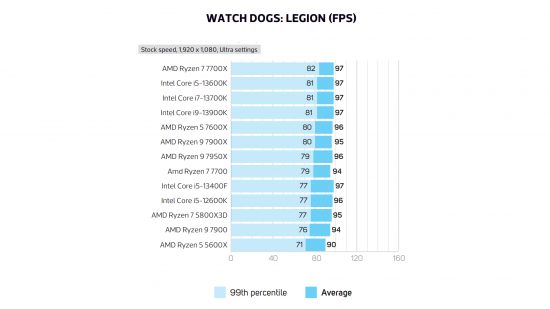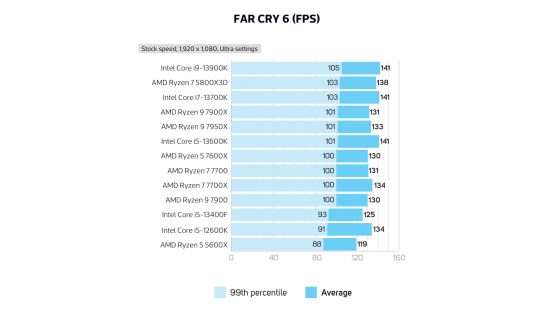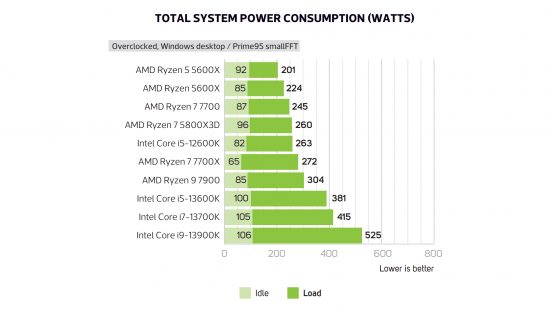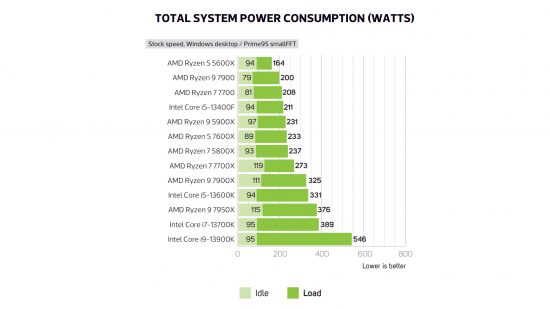Our Verdict
82%Only the hefty cost of the Socket AM5 platform prevents this efficient CPU from getting an unequivocal recommendation.
When AMD first announced it was releasing cheaper versions of its Ryzen 7000-series CPUs, we assumed the likes of a Ryzen 7 7700 would be noticeably cheaper than the Ryzen 7 7700X. However, a few weeks after its launch, the former only saves you $20 over the X-edition CPU. That said, though, both the Ryzen 7 7700 and the similar Ryzen 9 7900 have other advantages aside from being slightly cheaper than their X-branded counterparts.
At Custom PC, we’ve been reviewing the latest CPUs since 2003, and we’ve tested and overclocked hundreds of CPUs, going right back to the Pentium 4 and Athlon XP era. We’ve developed an expert testing methodology that covers all the key areas of performance, including single-threaded and multi-threaded performance, as well as gaming.
Our benchmarks include our very own RealBench suite, which had a GIMP image editing test that stresses single-threaded performance, and a Handbrake H.264 video encoding test to gauge multi-threaded performance, as well as multi-tasking tests.
We also use the single and multi-threaded tests in Cinebench, as well as Far Cry 6 and Watch Dogs: Legion. For our game tests, we record the 99th percentile and average frame rates, and finally, we also measure the idle and load total system power consumption at the wall, while running Prime95’s smallest FFT test with AVX disabled.
Both the aforementioned CPUs are limited to a 65W TDP rather than 105W for the Ryzen 7 7700X, but despite this limit, the Ryzen 7 7700 can still hit a peak boost of 5.35GHz, which is just 100MHz short of the 7700X’s stock peak boost clock.
However, AMD has had to cut performance somewhere to meet this thermal profile, and it’s the all-core boost that’s been sacrificed. The Ryzen 7 7700X can hit 5.2GHz across all eight cores, but the Ryzen 7 7700 is limited to 4.7GHz.
Other than this, the two CPUs are identical apart from the new model coming with a Wraith Prism cooler and a TDP of just 65W – if you’re running the chip at stock speed, this cooler will do the job fine. We’ve seen other Ryzen 7000-series CPUs quickly top 90°C in benchmarks, but the Ryzen 7 7700 rarely went above 70°C.
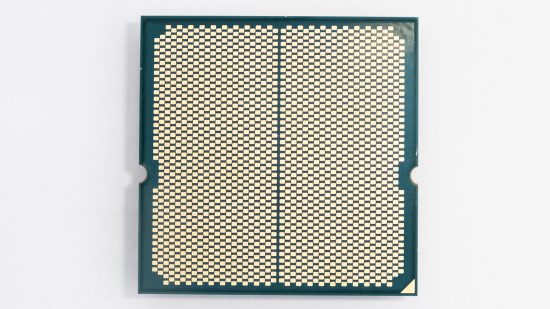
Overclocking was also interesting because there was much more thermal headroom than with other Ryzen 7000-series CPUs. However, we could push the Ryzen 7 7700 up to 5.1GHz with a manual all-core overclock, which caused temperatures to hit 90°C. Meanwhile, switching on Precision Boost Overdrive and Automatic Overclocking kept the lightly-threaded peak boost frequency, but still resulted in an all-core boost of 5GHz. To learn more, you can read our full guide on how to overclock AMD Ryzen 7000 CPUs.
Ryzen 7 7700 application performance
Out of the box, the Ryzen 7 7700’s performance wasn’t far behind that of the Ryzen 7 7700X and Core i5-13600K, with a system score of 340,984 compared to 360,350 and 372,186 respectively. However, it was noticeably slower in multi-threaded tests, falling 1,500 points short of the Ryzen 7 7700X in Cinebench.
Ryzen 7 7700 gaming performance
Watch Dogs: Legion also saw a drop in frame rates compared to the X-series chip at stock speed, but with PBO and Automatic Overclocking enabled, it clawed back most of the lost ground.
Ryzen 7 7700 power draw
Total system power consumption sat at over 60W less than the Ryzen 7 7700X at peak load, which is about the same as the Core i5-13400F, despite it beating the Intel CPU in every performance test. Our above overclock only resulted in a modest total system power draw increase to 245W too.
Ryzen 7 7700 pros and cons
Pros
- Decent multi-threaded performance
- Cool-running
- Very power efficient
Cons
- Core i5-13600K is faster and potentially cheaper
- Socket AM5 is expensive
- Limited benefits to manual overclocking
Ryzen 7 7700 specs
The AMD Ryzen 7 7700 specs list is:
| Base frequency: | 3.8 GHz |
| Max boost frequency: | 5.3 GHz |
| Core: | Zen 4 |
| Manufacturing process: | 5 nm |
| Number of cores: | 8 |
| Number of threads: | 16 |
| IGP: | AMD Radeon Graphics |
| L3 cache: | 32 MB |
| L2 cache: | 8 MB |
| Memory controller: | Dual-channel DDR5, up to 5200MHz |
| Packaging: | AMD Socket AM5 |
| Thermal design power (TDP): | 65 W |
| Simultaneous Multithreading (SMT): | Yes |
| Features: | Precision Boost 2, Precision Boost Overdrive 2, FMA3, F16C, SHA, BMI / BMI1 + BMI2, AVX-512, AVX2, AVX, AES, SSE4a, SSE4, SSSE3, SSE3, SSE2, SSE |
Ryzen 7 7700 price
The Ryzen 7 7700 offers decent value at the time of review, with solid performance and the ability to run at a very low power draw. However, it requires upgrading to a new AMD AM5 motherboard and DDR5 RAM.
Price: Expect to pay $330 USD / £330 GBP
Ryzen 7 7700 review conclusion
In terms of value, Intel’s Core i5-13600K costs the same price, supports cheaper memory and has more affordable motherboards available, making it our top choice if bang per buck is your primary concern. There are rumors there will be another generation of CPUs for LGA1700 too, so it may not be the dead-end platform everyone assumed either.
However, the drastic cuts in temperatures and power consumption offered by the Ryzen 7700 over the 7700X at stock speed, plus the fact it can claw back much of the same performance with some simple tweaking, make it a solid choice if you’re able to bear the cost of upgrading to AMD’s Socket AM5 platform.
What’s more, it also comes with a free cooler that’s ideal for small form factor systems. Thanks to its impressive multi-core performance and very low power draw, the Ryzen 7 7700 is easily worthy of a place on our best CPU list.
